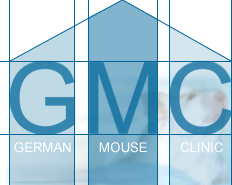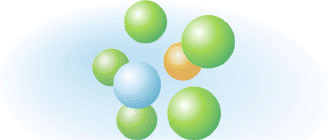 |
The speed with which information about mammalian genomes has accumulated over the last few years is remarkable. Yet, despite this wealth of information, immediate use in the diagnosis and therapy of human diseases is limited since only a small fraction of mutations causing congenital malformations or other human diseases has been identified.
Mouse models are essential to understand genetics and pathogenesis of human diseases. The mouse is intensively used as a model system due to its similarity to humans in genome organization, development, biochemical pathways, and physiology.
This platform offers an internationally competitive research program integrating the whole spectrum of mouse genetics and comprehensive phenotyping to model and analyze the molecular pathogenesis of human diseases. To achieve this complex task, the integrated SMP “Mammalian models for inherited diseases in man” was established as an interdisciplinary consortium of experts from universities, Helmholtz-Centres, Max Planck Institutes, and industry:
- Novel mouse models – Large-scale production of gene-driven mouse models produced in the projects “NGFN services” (“transgenic and knockout mice“, “F1 genotyping” and “chemical-induced mutagenesis of mouse ES cells”) and “German Gene Trap consortium“.
- Phenotyping – Standardized comprehensive mouse phenotyping by bringing together specialists from various fields of human and mouse phenotyping in the “German Mouse Clinic (GMC)“, the new international standard in mouse phenotyping. The GMC offers a phenotyping platform for comprehensive and standardized phenotyping of mouse mutants in the fields of behaviour, dysmorphology, bone and cartilage, neurology, eye function and development, clinical chemistry, immunology, allergy, steroid metabolism, nociception, expression profiling, lung function, energy metabolism and pathology. Furthermore, a screen for cardiovascular diseases will be established.
- Archiving – Germany has taken a leading role within the “European Mouse Mutant Archive” (EMMA) which underlines the international integration of this platform. EMMA is the European repository for archiving and distribution of valuable mouse models for the scientific community.


